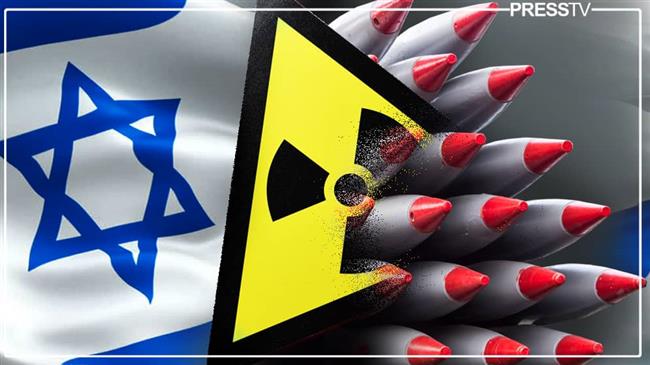Iran’s nuclear proxies vs. Israel’s nuclear ambiguity
Jerusalem should do whatever is needed to upgrade and enhance its nuclear deterrence posture in terms of doctrine and strategy.
By Louis Rene Beres
JNS
Juk 13, 2025

For Israel, recent military successes need not imply long-term national security. Though meeting its tactical objectives during the 12-day war, Jerusalem will still have to meet complex and continuous expectations of broad-spectrum deterrence. Plausibly, the Jewish state, smaller than Lake Michigan, faces even greater perils than before the war.
How is this possible? Didn’t the combined effects of Israeli and U.S. bombings “obliterate” Iran’s nuclear military threat? There is a succinct answer. Though this threat has been degraded, it has not been removed. In assorted increments, Iran could return to the status quo before the war and then advance further in tangibly quantum leaps. At some stage, already-nuclear state allies of Iran could agree to function as Tehran’s nuclear surrogate. North Korea and Pakistan come quickly to mind.
What is Israel’s most immediate task? Above all, Jerusalem should do whatever is needed to upgrade and enhance its nuclear deterrence posture. This posture, which includes both doctrine and strategy, will depend on Israel’s decipherable willingness to replace “deliberate nuclear ambiguity” with “selective nuclear disclosure.”
It’s not just about reaffirming the obvious. Controlled nuclear disclosure will be needed to assure Iran and other adversaries (nuclear and non-nuclear) that Israel’s ordnance would be available at all levels of foreseeable military conflict. Inter alia, this means that Jerusalem will need to make less ambiguous that its presumed nuclear weapons are seemingly “usable,” that is, not too destructive. Though counterintuitive and misunderstood, viable nuclear deterrence requires weapons that are recognizably amenable to situational adjustments and calibrations.
Even after Israel’s recent victories over Iran, it would be unreasonable to assume that “deliberate nuclear ambiguity” could work indefinitely. Even if Iran’s nuclear potentialities were meaningfully set back by the 12-day war bombardments, there remain other worrisome enemy states. After the just-halted conflict, Pakistan reaffirmed “complete solidarity” with Iran. This declaration included explicit threats of direct nuclear retaliation against Israel if Iran were to face an Israeli nuclear attack. Prima facie, nuclear North Korea has a history of belligerent interactions with Israel and could conceivably serve Iran as a fearsome nuclear proxy.
How do matters stand right now? Using reason as a decisional criterion, Israel will need to update its national strategic posture by shifting from “deliberate nuclear ambiguity” to “selective nuclear disclosure.” Though a war with Iran could become nuclear while Iran remained non-nuclear, that war would be asymmetrical. Ipso facto, it would favor Israel.
If Israel remained committed to its “bomb in the basement” nuclear posture, the country’s intra-war opportunities to achieve “escalation dominance” would be severely limited. Even if Tehran were to accept the “usability” of Israel’s nuclear options, it might still not believe that Jerusalem would be willing to exercise these options. As a result, a tit-for-tat dynamic of conventional warfare could proceed unabated, and Israel might have to face the exhausting prospect of seemingly interminable attrition warfare.
Iran is planning to buy Chinese Chengdu J-10C fighter jets compatible with PL-15 missiles, the same ordnance used by Pakistan’s air force. China already assists Iran by buying its oil, a vast benefit to Tehran that could accelerate resumed efforts to acquire nuclear weapons. Less directly, any planned U.S. sale of F-35 stealth fighter jets to Turkey could offer multiple military benefits to Iran.
Israel cannot rely indefinitely on an implicit nuclear deterrence posture. Regarding any future or impending war with Iran, Israel needs to consider once-speculative, but no longer unrealistic, scenarios. Among the narrative possibilities, Pakistan and/or North Korea could at some point become actual nuclear proxies for a still non-nuclear Iran. At that point, any Israeli continuance of “deliberate nuclear ambiguity” would be manifestly irrational.
Israel needs to ensure escalation dominance in all plausible conflict scenarios; this will mean keeping Iran non-nuclear. Though there will be many technical questions about optimal levels and times of “selective nuclear disclosure,” this is not yet the moment for raising such queries.
There is more. Even a pre-nuclear Iran could make combat use of radiation dispersal weapons and/or conventional missiles and drones, launched against Israel’s Dimona nuclear reactor. In a worst-case scenario, Iranian ally North Korea would place nuclear assets at Tehran’s operational disposal. Pyongyang, it should be recalled, built a nuclear reactor for Syria, which was destroyed by Israel’s “Operation Orchard” on Sept. 6, 2007.
While it is doubtful that “selective nuclear disclosure” would end Iran’s belligerent designs against Israel, a more selectively explicit Israeli deterrence posture represents Jerusalem’s only rational choice. At the same time, even this enhanced doctrine and strategy might not be enough. It follows that Jerusalem, with or without its American ally, could still need to launch new rounds of measured pre-emptive strikes.
The prevailing mood in Israel seemingly opposes changes to “deliberate nuclear ambiguity.” While this mood is understandable, it still fails to take into account changing enemy intentions and capabilities.
Moreover, although new pressures to join the Non-Proliferation Treaty would be problematic for Israel, the overall security liabilities of staying with “deliberate nuclear ambiguity” would be much greater.
No comments:
Post a Comment